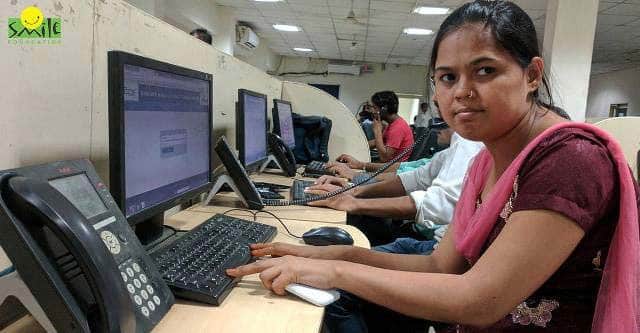( October 11, 2018 )

It is only through effective skill development that there can be a much greater form of independence through various rights-based narratives that guide a child’s life, writes the author on International Day of the Girl.
As we look towards a more equitable society, gender becomes a critical element to be dealt with. This has been realised by both the State and the Civil Society. In order to move ahead with various issues of gender, one understands that there is a particular reality that needs to be worked with. Every sector started with education in order to tackle the issue, which began with ‘Sarva Shikhsha Abhiyan’ and developed into a much more targeted ‘Beti Bachao, Beti Padhao’. Work then progressed onto various sectors of health and employment which has steadily moved onto financial inclusion and independence.
A critical aspect that has to be included is the development of skills. Women across the spectrum have been facing challenges due to lack of agency and mobility constraints. The data from Indian Human Development Survey (2012), in which 34,000 women were surveyed, about 80 per cent of them said that they needed permission from a family member in order to visit a health centre.
The ability to choose and make decisions that women have been kept away from has come to be changed. There are programmes in place that work on employment of women, but it is only through effective skill development that there can be a much greater form of independence through various rights-based narratives that guide a child’s life. They help the woman gain information on her emotional, physical and financial health; each of which play a critical role in making sure that the woman is maintaining her well-being.
“Employability and soft skills are the critical elements that are lacking amongst those leaving schools, graduates and those who are already in employment. Organisations tend to spend an extremely high amount of resources in training their staff, not in job specific areas but more so in general and basic skills.”
It is easier to work with developed countries and the formalised sector to understand the need of skill development, for which there are a plethora of studies that have been conducted. But these studies need to be widened and should aim at tackling issues in the developing sector – the primary reason being that a significant number of the world’s youth inhabits developing regions.
In developing countries, they are bound to face hurdles in terms of education and health. And even more critical is that they will be inducted into irregular and informal employment. Enterprise Surveys conducted in a mix of sectors across Sub-Saharan Africa and South East Asia have pointed to a significant convergence between the skills considered important in developed and developing regions. This is in addition to the basic and technical skills. These primarily turned out to be openness to learning, ability to communicate, good work habits, capacity for teamwork, personal integrity, leadership, entrepreneurship and the capacity for analytical and critical thinking.
“Instead of working on these issues, we have been working with adolescent girls and training them in various activities such as sewing, small scale production, marketing food and dairy products, production of handicraft and art. The civil society has also worked extensively on these issues.”
For instance, STeP (Smile Twin e-learning program) which is a national level programme of Smile Foundation, trains the urban underprivileged youth in most of the segments to increase their employability, particularly aiming at the expanding employability in retail, hospitality and BPO sectors. It has worked extensively with girl children, in fact, 52 per cent of the beneficiaries were girls.
One might want to take a look at the Incheon Declaration which has committed to a model of education hat which is essentially non-discriminatory in nature. The recognition that gender equality and women’s empowerment is absolutely necessary for development, has been a critical hindrance to move ahead on in this process.
In the UNESCO EFA Global Monitoring Report (2015), it was found that only 69 per cent of the countries were to achieve gender parity in access to education at the primary school level by 2015 while in the secondary school level, it stood at 48 per cent.
Source: https://delhipostnews.com/empowering-community-through-girl-child-skilling/